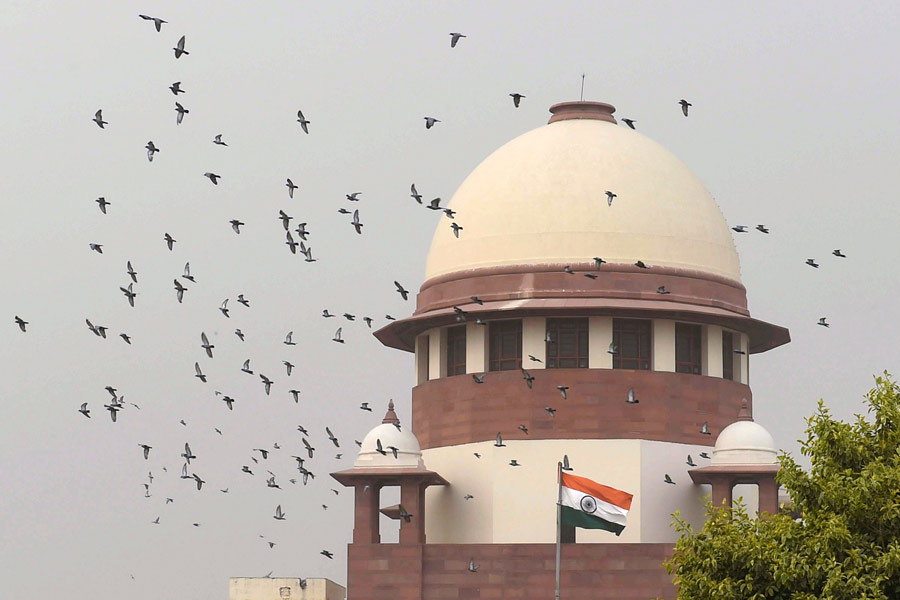An application was filed in the Supreme Court on Tuesday seeking a direction to the Centre to stay the implementation of the Citizenship Amendment Rules, 2024 till the pendency of petitions challenging the constitutional validity of the Citizenship (Amendment) Act, 2019 before the apex court.
The application was filed a day after the Centre implemented the Citizenship (Amendment) Act, 2019, by notifying the rules four years after the contentious law was passed by Parliament to fast-track citizenship for undocumented non-Muslim migrants from Pakistan, Bangladesh and Afghanistan who came to India before December 31, 2014.
The application, filed by the Indian Union Muslim League (IUML), which is one of the petitioners who have challenged the citizenship law, has sought the court's direction to ensure no coercive action is taken against people belonging to the Muslim community pending adjudication of the writ petitions. Muslims cannot apply for Indian citizenship under the CAA.
It has urged the apex court to direct the Centre to provisionally permit people belonging to the Muslim community also to apply for citizenship and submit a report on their entitlement.
A separate application has also been filed by the Democratic Youth Federation of India seeking a stay on the Citizenship (Amendment) Rules, 2024.
The apex court is already seized of a batch of pleas challenging the constitutional validity of the Citizenship (Amendment) Act (CAA).
In its application, IUML has urged the court to stay the "continued operation of the impugned provisions of Citizenship Amendment Act, 2019; and Citizenship Amendment Rules 2024, which would result in valuable rights being created and citizenship being granted to persons belonging to only certain religions, thereby resulting in a fait accompli situation, during the pendency of the present writ petition".
Seeking a stay on the rules, the application said about 250 petitions challenging the provisions of the CAA were pending before the top court.
"If in case this court finally decided the CAA as unconstitutional, then these people who would have got citizenship under the impugned Act and rules would have to be deprived of their citizenship or stripped of their citizenship, which would create anomalous situation," it said.
"Therefore, it is in the best interest of every person to defer the implementation of CAA and impugned rules till this court finally decides the matter," the application said.
It said the Act was passed in 2019 and the government waited for over four years to notify the rules.
"The government did not consider it as urgent to implement it for past 4.5 years. Therefore, to wait till final decision of this court would not affect anybody's rights or interest," the application said.
It said the IUML had in its petition itself stated that it was not against giving citizenship to migrants.
"However, its position is that this is a legislation which is based on exclusion of a religion. Since the CAA discriminates on the basis of religion, it strikes at the root of the concept of secularism, which is the basic structure of Constitution," it said.
With the unveiling of the rules on Monday, days ahead of the announcement of the Lok Sabha elections, the Modi government will now start granting Indian citizenship to persecuted non-Muslim migrants -- Hindus, Sikhs, Jains, Buddhists, Parsis and Christians -- from Pakistan, Afghanistan and Bangladesh.
The rules comes into force with immediate effect, according to a gazette notification.
The contentious CAA had sparked protests in various parts of the country in late 2019 and early 2020 over alleged discriminatory provisions.
While refusing to stay the operation of the law, the top court had on December 18, 2019 issued notices to the Centre on the pleas.
Except for the headline, this story has not been edited by The Telegraph Online staff and has been published from a syndicated feed.











